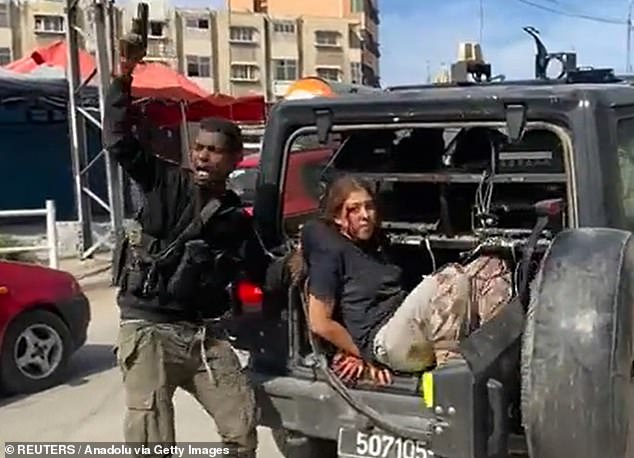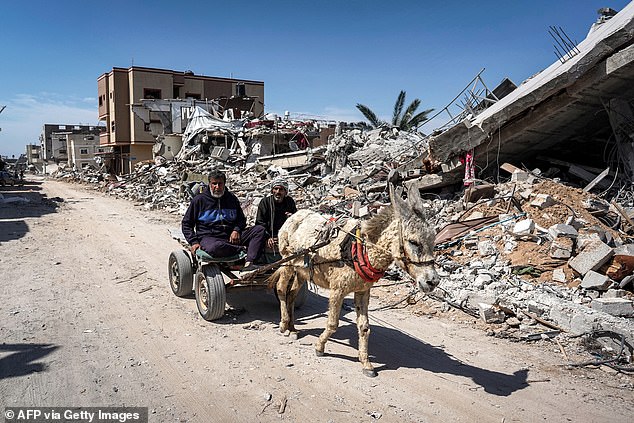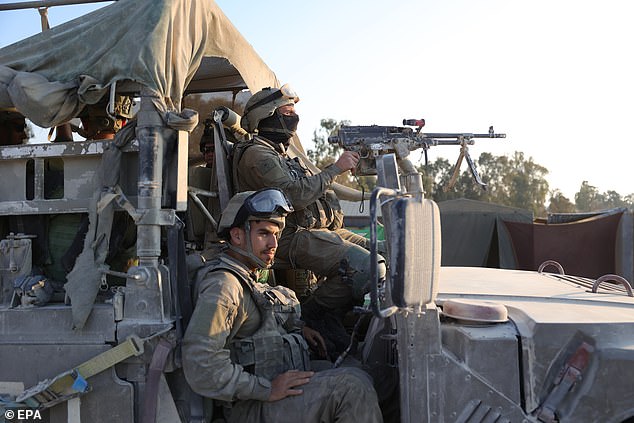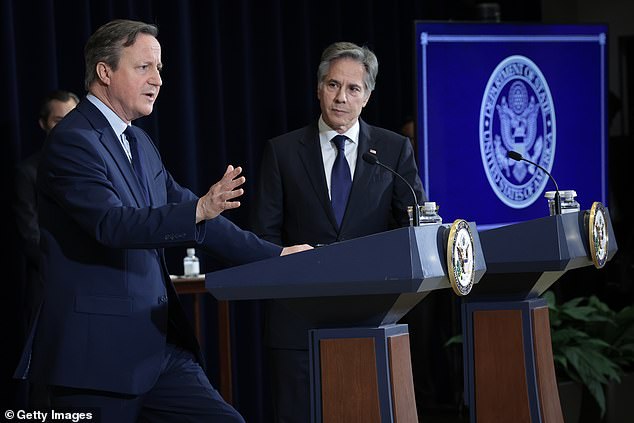- Blinken expressed outrage when foreign aid workers were killed last week.
- On Tuesday he was asked why he had not expressed outrage over other aide deaths.
- He said he was “stunned” by the silence about Hamas and its killings.
Secretary of State Antony Blinken delivered an emotional rebuke to critics of Israeli and American foreign policy, asking why their outrage was not directed at Hamas and the architects of the shocking October 7 terrorist attack.
World opinion has hardened against Israel over its siege of Gaza and the deaths of more than 33,000 Palestinians.
At the same time, the Biden administration is under increasing pressure to end arms sales to its largest Middle East ally and rein in Prime Minister Benjamin Netanyahu’s government as famine looms in the Palestinian enclave.
Asked on Tuesday why it took the deaths of foreign aid workers rather than thousands of Palestinians, local aid workers and journalists to trigger an expression of outrage and a harder line from President Joe Biden, Blinken expressed his obvious frustration.
“It continues to surprise me that the world is almost deafeningly silent when it comes to Hamas,” he told reporters at the State Department.
Secretary of State Antony Blinken delivered his comments at a press conference alongside British Foreign Secretary David Cameron following their meeting on Tuesday morning.

Blinken delivered an emotional rebuke to critics of Israeli and US foreign policy, asking why their outrage was not directed at Hamas and the architects of the shocking October 7 attack.
“We would not be where we are if Hamas had not chosen to participate in one of the most horrendous acts of brutality and terrorism on October 7.
‘And having done so, had they not refused for many, many months to get out of the way of civilians, to stop hiding behind them, to lay down their weapons… and to surrender? Where is the indignation?
His words were more explicit and emotional, but officials have frequently used a similar strategy to deflect questions about Israeli behavior by responding with details of Hamas’ barbarity when gunmen killed 1,200 people on Oct. 7.
Last week, seven aid workers, including one American and three Britons, were killed in an Israeli airstrike.
The result was an immediate change of course by the White House. A spokesman condemned the killings and Biden, in a call to Netanyahu, demanded a ceasefire and hinted at a future shift in US support for Israel.
He demanded immediate action to alleviate the humanitarian crisis.
Meanwhile, officials have repeatedly warned Israel not to launch an operation in Rafah, Gaza’s last refuge for families fleeing the bombing, and have asked to see a plan for how Israel will minimize civilian casualties.
A day earlier, Netanyahu said he had a date for the start of the operation.
On Tuesday, Blinken said US officials did not know what the timeline was.

Two men sitting on a donkey cart pass through the rubble of a destroyed building in Khan Yunis on April 7, 2024, after Israel withdrew its ground forces from the southern Gaza Strip, six months after the devastating war caused by the attacks of October 7.

Israeli soldiers at a checkpoint along the Gaza border in southern Israel.
“On the contrary, what we have is an ongoing conversation with Israel about any operation in Rafah,” he said.
Talks, he added, are expected to continue next week.
‘I don’t anticipate any action being taken before those talks and, in fact, I don’t see anything imminent. But much work remains to be done and we remain convinced that major military operations in Rafah would be extremely dangerous for civilians, who would be left at risk,” he said.
At the same time, talks are taking place in Cairo to try to find a way out of the devastating war.
Egyptian and Qatari mediators are trying to reach an agreement that would allow the hostages held by Hamas to be brought home. The terrorist group wants an agreement that ends the Israeli offensive.


